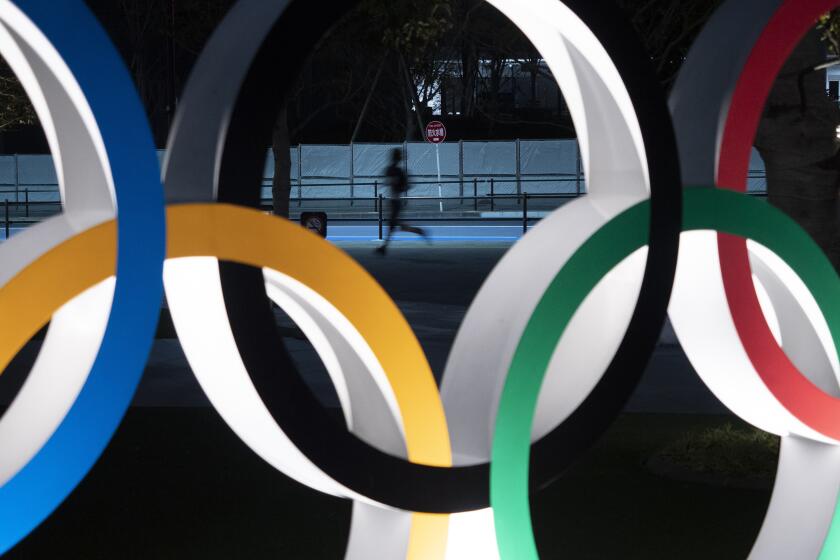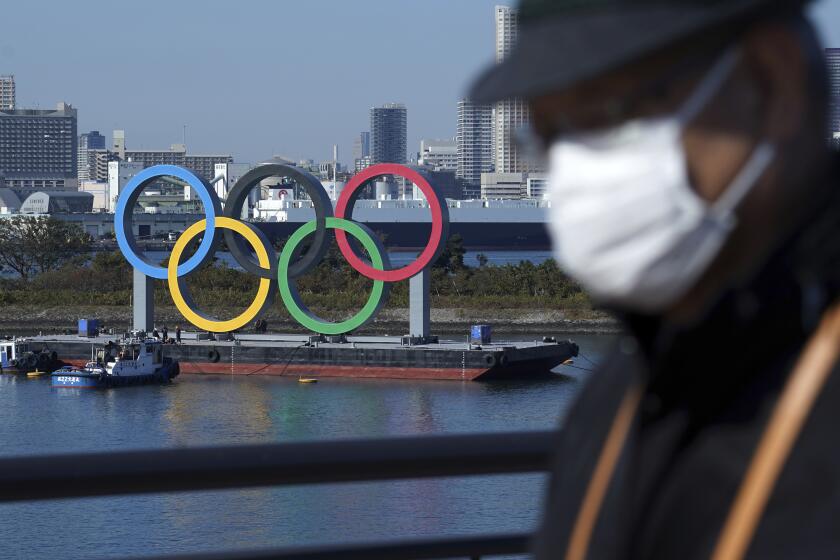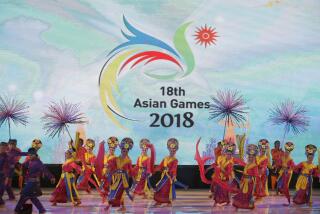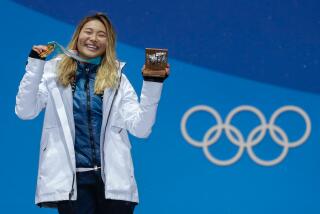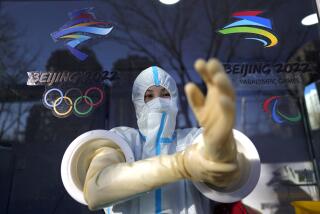Olympic organizers hope evolving ‘playbook’ for COVID-19 will unlock Tokyo Games

Olympic leaders heard the whispers, the growing suspicion that their upcoming Summer Games in Tokyo will be canceled, once and for all, because of the novel coronavirus pandemic.
With new variants threatening to trigger yet another COVID-19 surge in the near future, a London newspaper reported that Japan was quietly backing away. Government officials and the International Olympic Committee issued quick denials, followed Wednesday by a first glimpse at plans for what could be an unusual event.
The new Olympic “playbook” establishes rules that include quarantining, frequent testing, no visiting tourist sites and a ban on “singing or chanting” during competition. Also, no facemasks with unofficial sponsor logos.
“These Games, in many respects, will be different,” IOC operations director Pierre Ducrey told reporters. “There will be a number of constraints and conditions.”
It makes sense to worry about convening masses of people from around the world in one city next July. As of this week, there were more than 104 million reported cases and 2.2 million deaths related to COVID-19 globally, according to data compiled by Johns Hopkins University.
“Even if you vaccinate … still there is an infection going on. You’re protecting [athletes] from death, but you’re not protecting them from spreading the virus back to their homeland.”
— Ali Mokdad of the Institute for Health Metrics and Evaluation (IHME) at the University of Washington
Japan has fared comparatively well with about 6,000 deaths, but rising infection rates have put much of the country in a state of emergency. A recent poll showed more than 70% of residents want the Olympics, already postponed from last summer, to be delayed again or scratched entirely.
“We have to change the way we deliver the Games because, for the general public, the highest priority is to be safe,” Tokyo 2020 executive Hidemasa Nakamura said. Even as vaccines roll out in scores of countries, public health officials warn that caution and flexibility will be paramount.
“This pandemic is really hard to predict even two weeks from now,” said Tara Kirk Sell, a senior scholar at the Johns Hopkins Center for Health Security and former U.S. Olympic swimmer. “They can probably pull it off, but it will be incredibly tricky.”
About 11,000 athletes are expected to compete at the Olympics, with 4,400 more arriving for the Paralympics in late August. Competitors will be accompanied by tens of thousands of coaches, officials, judges and media, a phalanx that will descend on Tokyo from more than 200 nations.
Tokyo Olympics organizers are pushing back on a report that Japanese officials believe the Games will be canceled because of the coronavirus.
The IOC will not mandate that participants be vaccinated, and the World Health Organization has pushed back against the idea of young athletes jumping the queue. Risk of infection will be all the more significant because poor nations from the Southern Hemisphere, where vaccines have been scarce, will have reached wintertime, when rates can soar.
“Rich countries will have vaccinated a large proportion of their people,” said Ali Mokdad, an epidemiologist at the Institute for Health Metrics and Evaluation (IHME) at the University of Washington. “They will be in better position than, for example, Ethiopia or Sudan.”
This discrepancy could turn the Games into a superspreader event of global proportions.
“Even if you vaccinate … still there is an infection going on,” Mokdad said. “You’re protecting [athletes] from death, but you’re not protecting them from spreading the virus back to their homeland.”
None of this has deterred the Olympic movement or its corporate partners, who have financial incentive to push ahead. Broadcast rights account for 73% of the IOC’s quadrennial $5.7 billion in revenues, so there is much to be gained from televising the competition. Some of that cash will flow to Tokyo, which has reportedly sunk $25 billion into preparations.
Just as important, at a time when large cities already hesitate to host the costly event, a cancellation could scare away bidders beyond Paris in 2024 and Los Angeles in 2028.
With coronavirus vaccines expected to become more available in the spring, U.S. athletes may need them to be allowed to compete in the Tokyo Olympics.
IOC officials and local organizers began discussing a reboot immediately after last March’s postponement. Their fledgling plan was nicknamed “The Crystal Project” because, IOC communications head Lucia Montanarella said, “you really needed a crystal ball to try and understand” how the pandemic might look a year later.
Four scenarios emerged, ranging from a near-total lockdown situation to a world where infection rates have dropped significantly, allowing more freedom in travel and public gatherings.
The first playbook on Wednesday, directed at visiting federation executives and technical officials, established what the IOC calls a framework for later guidelines meant for athletes, team officials and the media.
Many of the rules are predictable, calling for masks, hand washing and social distancing. Participants must be tested before departing for Tokyo, on arrival and every few days thereafter. They must download contact tracing apps to their cellphones.
Organizers might eventually compartmentalize events, creating bubbles within the Games to contain potential outbreaks. Anyone testing positive might be shifted to a “government-approved isolation facility.”
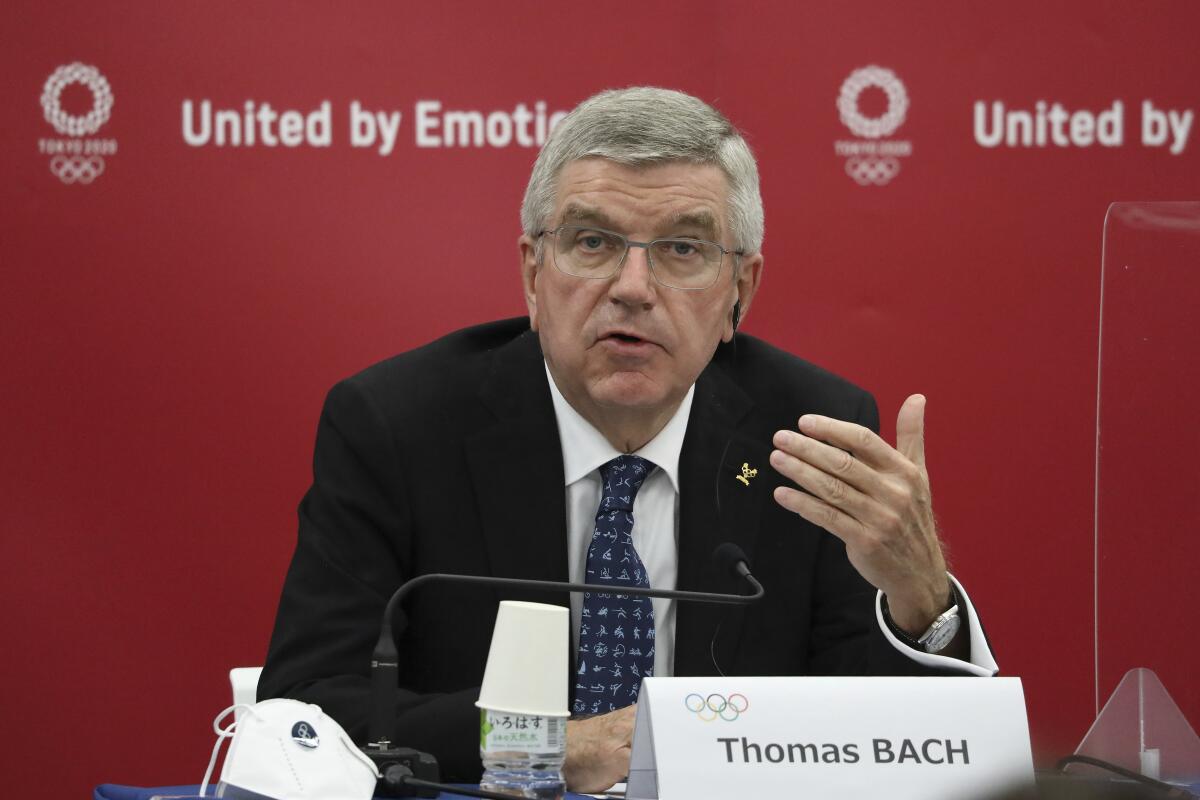
“We are putting together a huge tool box of measures,” IOC president Thomas Bach said recently. “And then we will decide at the appropriate time which of the tools we need to address the situation.”
Updated versions of the plan are expected in April and July as the state of the pandemic shifts. In the meantime, USA Swimming offered a preview, announcing that its Olympic trials will be split into two meets, reducing the number of athletes around the pool and in warm-up areas.
Swimming officials have not yet decided whether to allow spectators. In Tokyo, organizers are similarly uncertain, even though ticket sales represent their third-largest source of predicted revenue at $800 million.
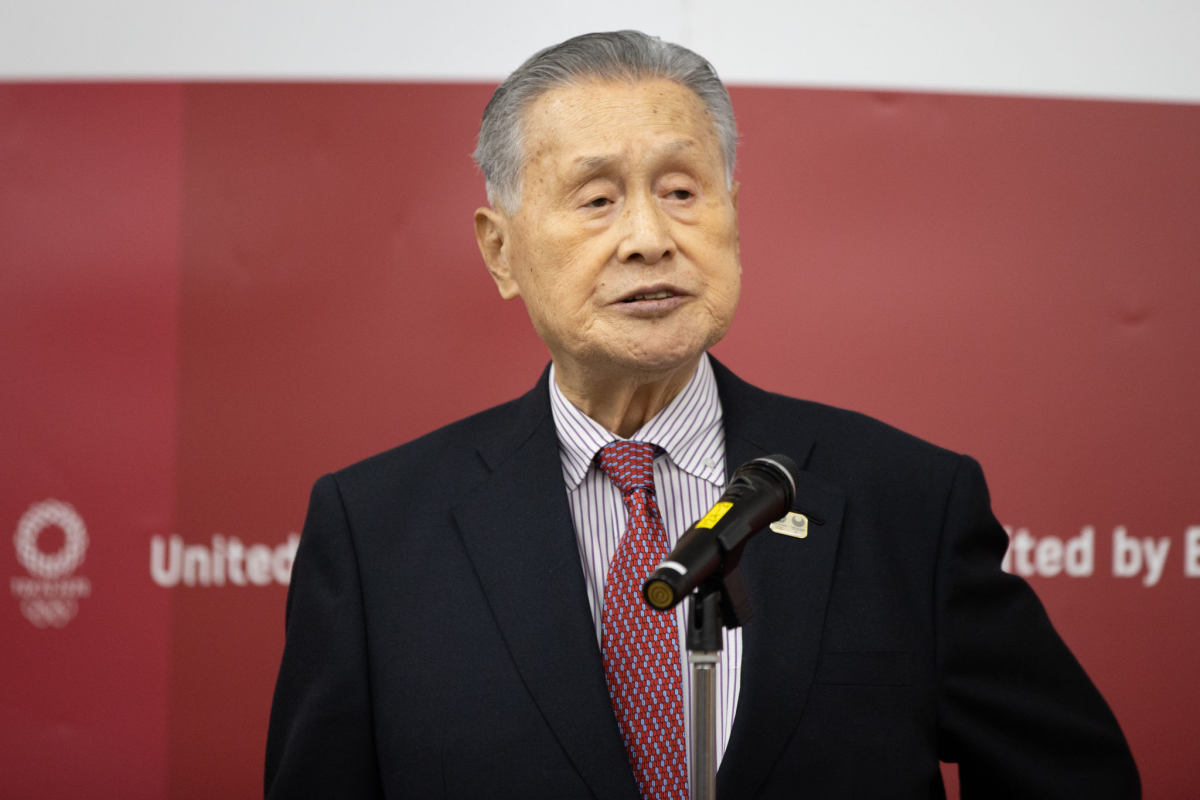
“Naturally, we are looking into many different scenarios,” said Yoshiro Mori, president of the organizing committee. “Basically, we don’t want to hold [the Games] without spectators, but in terms of simulations, we are covering all the options.”
Still, Olympic leaders insist the outlook has brightened since last spring. In addition to vaccines, more is known about living in a pandemic. The NFL, NBA, English soccer and other marquee leagues have succeeded, albeit with difficulty, in holding entire seasons.
But public health experts insist that a truly international event whose scope extends beyond a few hundred or even a few thousand athletes is far more vulnerable.
It has yet to be determined if events might be postponed because of positive tests. As a silver medalist at the 2004 Athens Games, Sell knows that keeping athletes distanced will be difficult, not only during competition but also in the village and on buses to and from venues. The Johns Hopkins scholar wonders about containing outbreaks.
“Just imagine how complicated that would be,” she said. “It would eliminate huge swaths of athletes.”
In terms of changing routines or temporarily discarding traditions, Bach has said “sacrifices will be needed” and nothing is set in stone. At the very least, experts predict Tokyo will look unlike any other Olympics.
“When we imagine the Games, we think of those big opening and closing ceremonies, a huge spectacle and a symbol of global unity,” Sell said. “Trying to keep people separated is the opposite of that.”
More to Read
Go beyond the scoreboard
Get the latest on L.A.'s teams in the daily Sports Report newsletter.
You may occasionally receive promotional content from the Los Angeles Times.

